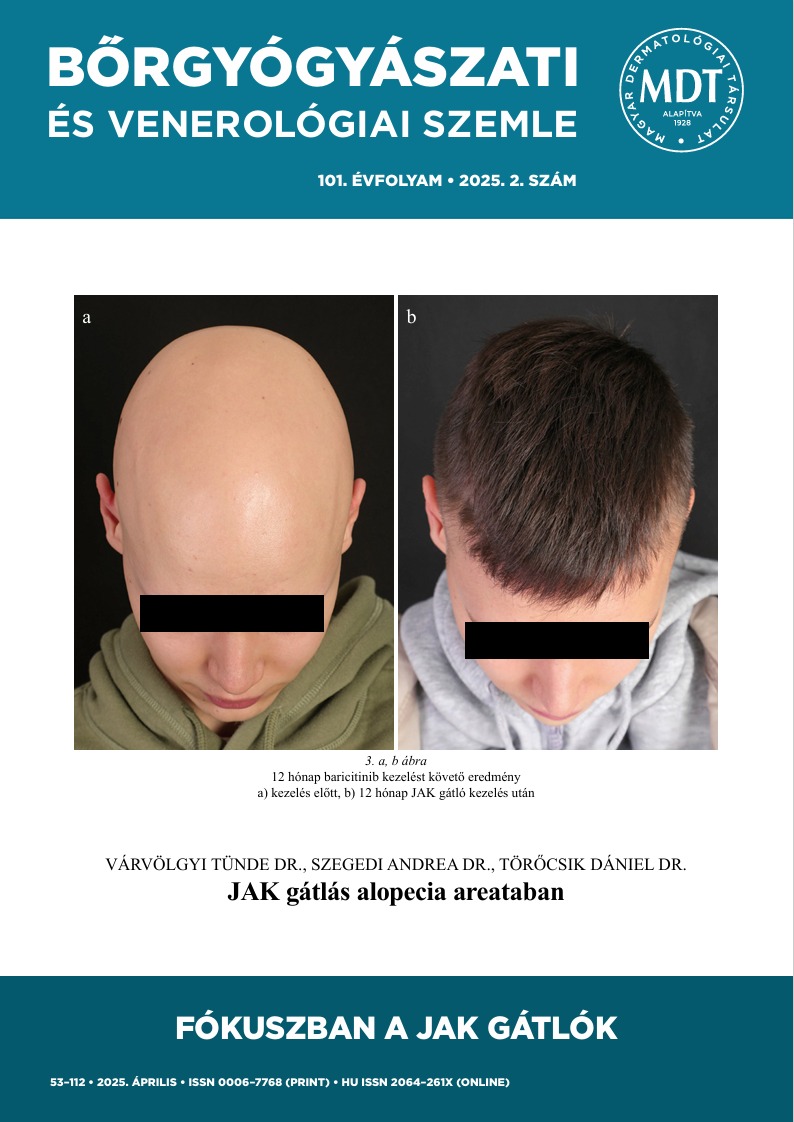A JAK gátlás biztonságossága, gyakorlati kivitelezése
Absztrakt
A Janus Kinase (JAK) gátlók egyre szélesebb körben használatosak a bőrgyógyászatban, igen hatékony terápiás eszközök az atópiás dermatitisz, a pikkelysömör, a vitiligo és az alopecia areata kezelésében. A JAK-gátlók fekete háromszög jelölést kaptak, miután egy nagyméretű, kontrollált vizsgálat igazolta, hogy a magas dózisú tofacitinibbel kezelt reumatoid artritiszes betegek fokozott biztonsági kockázatnak vannak kitéve a TNF-gátlóval kezelt betegekhez képest. Ugyanakkor a bőrgyógyászati betegségekre irányuló klinikai vizsgálatokban a JAK-gátlók esetében alacsony volt a súlyos mellékhatások kockázata. A legtöbb mellékhatás (infekciók, herpes zoster fertőzés, limfopénia, neutropénia, transzaminázszint emelkedés) vélhetően csoporthatás miatt alakul ki. A JAK-gátlók alapvetően nem fokozzák az artériás/vénás tromboembólia (ATE/VTE) események, gasztrointesztinális perforáció és a malignus elváltozások kialakulásának kockázatát. Összességében a JAK-gátlók biztonságosan alkalmazhatók, bár a forgalomba hozatalt követő farmakovigilanciai vizsgálatok kulcsfontosságúak a biztonságosság további értékelése szempontjából.




